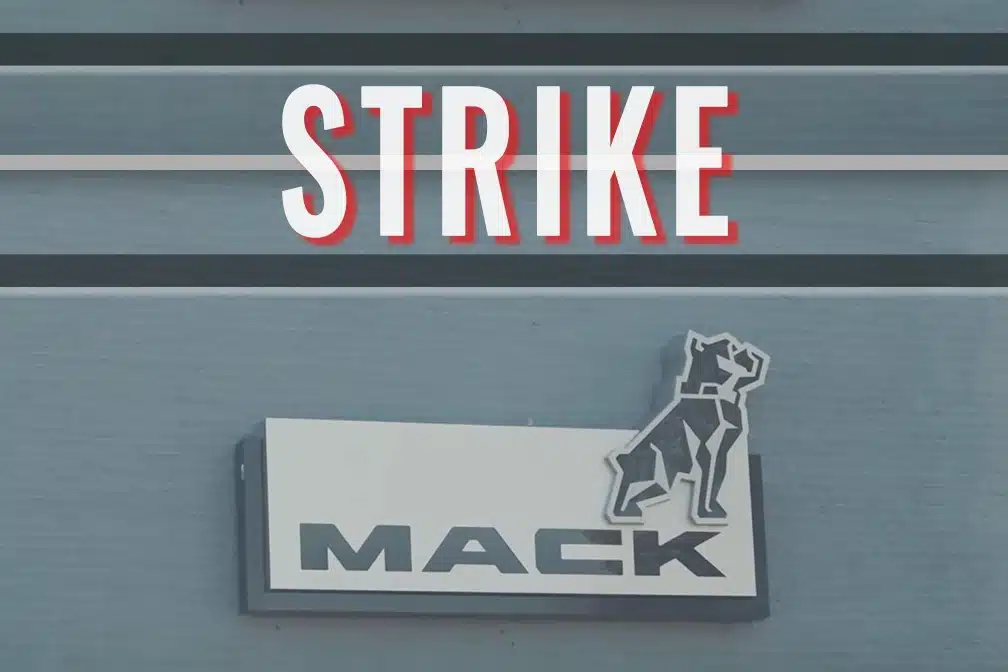The Surface Transportation Assistance Act (STAA) was a significant piece of legislation enacted in the United States in 1982 that profoundly impacted the country's transportation infrastructure and
More
May 19, 2024 5:06 pm

In recent news, we’ve witnessed a significant labor strike within the trucking industry that has captured the attention of truck drivers and enthusiasts alike. Union workers at Mack Trucks, a subsidiary of Volvo Group, initiated a strike after rejecting a proposed five-year contract. This strike, involving approximately 4,000 workers across Pennsylvania, Florida, and Maryland, raises questions about the challenges faced by truck drivers and their pursuit of fair compensation and working conditions.
The core issue that prompted this strike was the overwhelming rejection of a proposed contract by the United Auto Workers (UAW). About 73% of the Mack Truck workers voted against the deal, which included a 19% pay raise over the contract’s duration. Additionally, the contract offered a $3,500 ratification bonus, improved retirement benefits, extra vacation days for certain employees, and a reduction in the time required to reach the top pay tier.
On the surface, these offerings might seem generous, especially given the current economic climate. However, some truck workers expressed their discontent, arguing that the raise was insufficient to keep pace with the rising cost of living. As one material technician put it, “The cost of living had gone up more than the 19% Mack offer.” This sentiment highlights the financial pressures faced by many truck drivers, who often contend with inflationary forces that erode their purchasing power.
As a truck driver, you can read the trucking news-related articles.

The UAW played a crucial role in this labor dispute. The UAW had initially endorsed the tentative agreement for Mack Trucks workers to vote on. Still, it seems that the majority of the members did not share the same enthusiasm for the deal. This incident reflects the importance of unions in protecting the rights and interests of truck drivers and other workers. Union negotiations are vital avenues for truck drivers to voice their concerns and advocate for improved working conditions and fair compensation.
This strike at Mack Trucks adds to the ongoing labor turmoil in the automotive industry. It’s noteworthy that this strike follows a pattern of labor disputes that have affected all three major Detroit automakers—General Motors, Ford, and Stellantis. These strikes have collectively involved over 30,000 UAW members across 22 states, demonstrating the growing labor unrest in the industry.
One notable aspect of these strikes is the divergent expectations regarding pay raises. While the rejected Mack Trucks contract offered a 19% pay raise, the UAW had set high expectations in its negotiations with the big three automakers. In these talks, the UAW sought 36% raises over four years, while Ford offered 23%, and the other two companies proposed 20%. These discrepancies highlight the complexities of labor negotiations and the differing priorities of truck drivers, union leadership, and corporate management.
As the strike at Mack Trucks unfolds, it’s clear that both sides remain far apart on various issues, including work schedules, health and safety, pensions, health care, prescription drug coverage, overtime, and other crucial matters. While the strike represents a challenging moment for both the company and its workers, it also underscores the determination of truck drivers and their demand for equitable working conditions and wages.
It’s essential for the trucking industry and its stakeholders, including truck drivers, to closely follow the developments of this strike and its eventual resolution. The outcome will undoubtedly have ripple effects, potentially influencing future labor negotiations in the industry and shaping the experiences of truck drivers nationwide.
Don’t Miss:
To fully appreciate the significance of the Mack Trucks strike, it’s essential to understand the unique challenges that truck drivers face in their profession.
Long Hours and Time Away from Home: Truck drivers often spend extended periods on the road, away from their families and loved ones. The demands of the job can lead to feelings of isolation and homesickness.
Safety Concerns: Safety is a paramount concern for truck drivers. They navigate through various weather conditions, traffic, and sometimes even unsafe areas. Ensuring their well-being on the road is crucial.
Health and Well-being: The sedentary nature of truck driving can take a toll on drivers’ health. Sitting for prolonged hours and limited access to nutritious food options can contribute to health issues.
Economic Pressures: Fluctuating fuel prices, maintenance costs, and uncertain work schedules can create economic stress for truck drivers.
Regulatory Challenges: Compliance with strict regulations, such as hours of service rules, adds complexity to the job and can lead to fines if not adhered to diligently.

Truck drivers are the backbone of the transportation industry, responsible for delivering goods that sustain our economy. Their role is critical, and they deserve fair compensation and working conditions that recognize their dedication and sacrifices.
While the rejected contract at Mack Trucks included a pay raise, it’s evident that some drivers felt it was inadequate. This sentiment underscores the importance of fair compensation in the trucking industry. Truck drivers need to earn a livable wage that not only covers their basic needs but also provides for their families and allows for a comfortable life.
Labor unions, such as UAW, play a vital role in advocating for truck drivers. Unions give drivers a collective voice, allowing them to negotiate for better wages, benefits, and working conditions. In the case of the Mack Trucks strike, the UAW stood with the workers, seeking a deal that better addressed their concerns.
The rejection of the proposed contract is a testament to the power of collective bargaining. Truck drivers when unified, can influence the terms of their employment and demand improvements that reflect the challenges they face on the road.
The strike at Mack Trucks is not an isolated incident but rather part of a broader labor movement within the automotive industry. The trucking sector is intertwined with the automotive industry, as trucks are essential for transporting vehicles, parts, and raw materials.
The success or failure of the strike at Mack Trucks could set a precedent for future negotiations and labor actions within the industry. It serves as a reminder that the issues faced by truck drivers resonate with many other workers across the country who are also seeking fair compensation and improved working conditions.
Conclusion
In conclusion, the Mack Trucks strike serves as a reminder of the critical role that unions play in advocating for the interests of truck drivers and other workers in the trucking industry. As truck drivers navigate the complexities of their profession, they rely on collective bargaining and union support to ensure fair treatment and compensation. The strike also highlights the broader labor challenges facing the automotive industry and the unique dynamics at play in each negotiation. Truck drivers and those interested in the industry must stay informed about these developments, as they have the potential to shape the future of trucking in the United States.
As we continue to follow the developments of the Mack Trucks strike and the broader labor landscape, we must remember the significance of truck drivers in our society. They are the unsung heroes who keep our economy moving, and their demands for fair treatment deserve our attention and support. Ultimately, the outcome of this strike will not only impact the lives of Mack Truck workers but also influence the future of labor negotiations and working conditions for truck drivers across the nation.
For more information and articles from the trucking industry, follow us on Facebook or subscribe to our Truck Driver News newsletter.
The Surface Transportation Assistance Act (STAA) was a significant piece of legislation enacted in the United States in 1982 that profoundly impacted the country's transportation infrastructure and
MoreIn a Recent Federal Court Ruling, Sleeper Berth Time for Truck Drivers Is Now Compensable Under Fair Labor Standards Act, Impacting Industry Pay Policies.
MoreBNSF Logistics is a game-changing acquisition by J.B. Hunt. Learn more In a significant development within the transportation and logistics industry, J.B. Hunt, a renowned player
MoreThe American Trucking Associations (ATA) has expressed strong opposition to the Department of Justice's proposed rule of marijuana reclassification.
MoreIn an effort to increase efficiency and sustainability in Trucking, Phillips Industries has launched their new, advanced, stick-on solar panels
MoreThe 2024 CVSA International Roadcheck is scheduled for May 14-16. Over 72 hours, inspectors across the US will conduct nearly
MoreAutomated License Plate Readers are a major advance in law enforcement technology but they raise significant privacy and oversight challenges.
MoreThe EPA's latest emission standards detailed in a final rule issued on March 29 are sparking vigorous debate within the
More